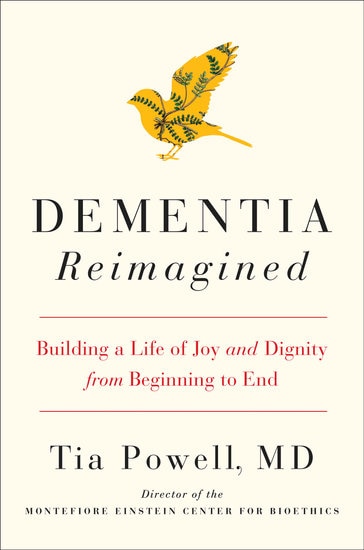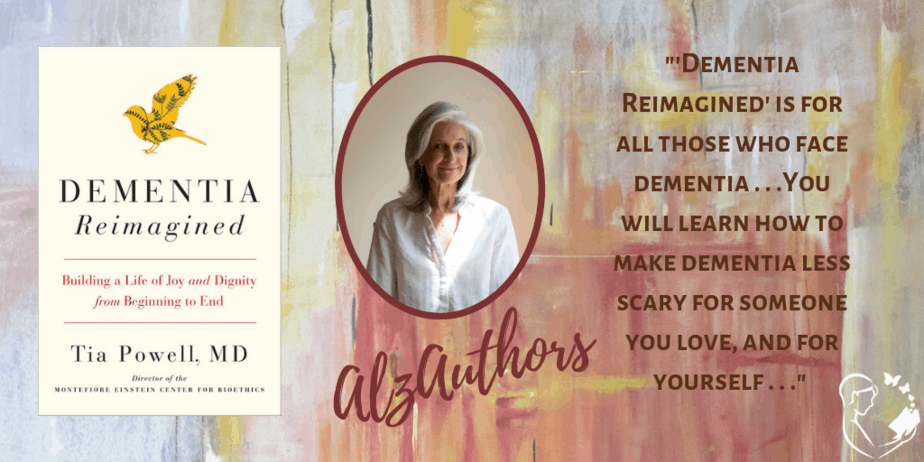 By Tia Powell, MD
By Tia Powell, MD
Our view of dementia is changing, but it needs to change more. How we treat others, particularly vulnerable others, is part of what defines us as a society. When we hide demented elders because they look or act strange, when we fail to provide caring ways and places to live with dementia, we fail in important responsibilities. And yet people struggle with how to meet their obligations and find little guidance available. Should I lie to my father to get him to take medication? To get him to move out of the house where he has lived for decades but is no longer safe? Can we prevent those with cognitive impairment from driving, and if we do, how will we improve public transportation to better accommodate elders?
At one point in my life, I thought I knew something about dementia because I could recognize its symptoms and identify a hippocampus. But even as a doctor, I was not prepared when my mother developed the disease. I did not understand the options. I had to learn along with my siblings what sort of care she might need at any given stage and try to get that for her. I don’t think we made terrible mistakes, but we made some. Our choices were difficult and the consequences were impossible to know in advance. My family learned the hard way about caring for someone with dementia. We faced hard choices large and small, about what care we want for ourselves and how we ought to treat others.
Since publishing the book, I have been touched by many people who wrote me about their experiences. End of life care is particularly tough, and many have been grateful for advice on how to navigate these painful decisions. Quite a few have been angry about being pushed into medical care that was unhelpful for a loved one. Others have felt better about facing the dementia that may be in their future.
Dementia Reimagined is for all those who face dementia. You will see the disease more clearly, and this knowledge will make it less, not more, frightening. This book is about how hard it is to get things right— to plan, to get the right care at the right time, to pay for that care, and to work together to find better treatments and support. It tells you some of what you can do to make the experience of dementia a little less lousy and a bit more joyful. This illness is not just about loss; it is also about preservation— of affection, of dignity, of hope. You will learn how to make dementia less scary for someone you love, and for yourself.
 About the Author
About the Author
Tia Powell, MD holds the Trachtenberg chair in Bioethics at Albert Einstein College of Medicine, where she is Professor of Epidemiology and Psychiatry. She directs the Montefiore Einstein Center for Bioethics and the Certificate and Masters Programs in Bioethics. She is recognized for her bioethics scholarship related to dementia, LGBT issues, end of life care, ethics consultation, and health policy, especially regarding public health disasters. She currently chairs a workgroup for the National Academies of Science, Engineering and Medicine to recommend the next decade of social science research to support those with dementia and their caregivers. She has served on several NASEM workgroups, and has provided bioethics expertise for CDC, NIH, HHS, and NY City and State health departments. She previously founded the bioethics consultation service at Columbia Presbyterian Hospital, and served as Executive Director of the New York State Task Force on Life and the Law, which functions as New York State’s bioethics commission. She is a Fellow of the Hastings Center, the American Psychiatric Association and the New York Academy of Medicine. She is a frequent public speaker at medical schools, professional society meetings, universities, and in the media. She was graduated magna cum laude from Harvard-Radcliffe College, and AOA from Yale Medical School. Her book, Dementia Reimagined: Building a Life of Joy and Dignity from Beginning to End, was published by Penguin Random House in April, 2019.
Social media:
Twitter @TiaPowell
Facebook @TiaPowellMD
Website: www.Tiapowellmd.com


